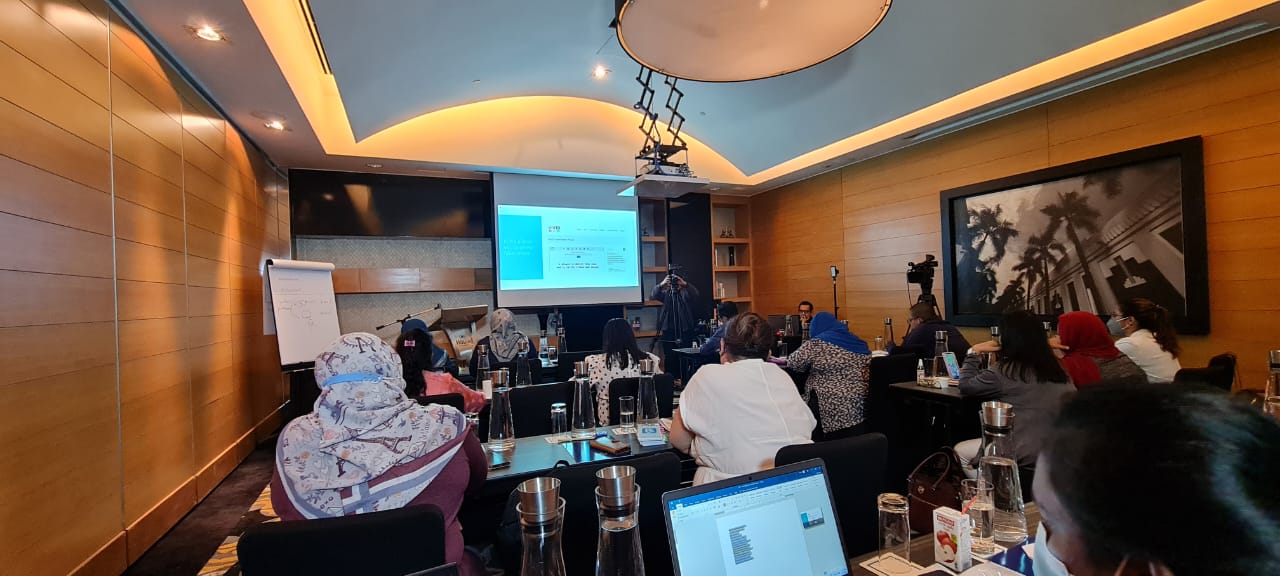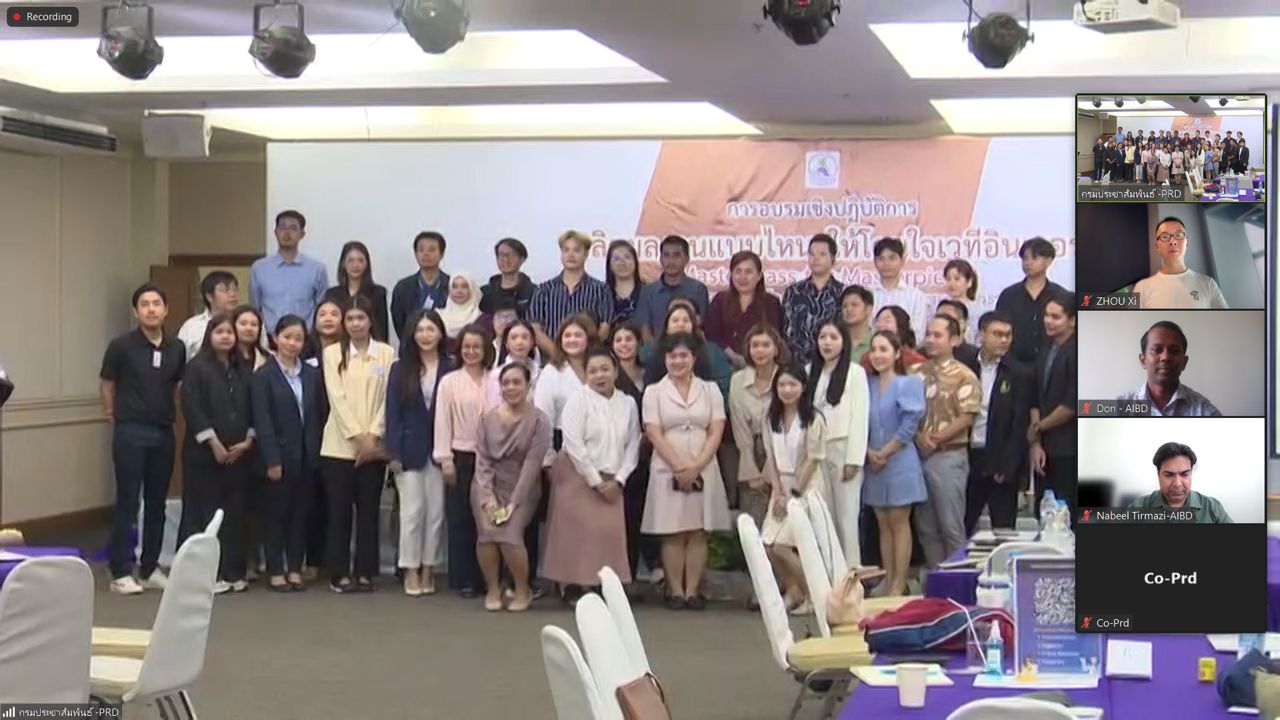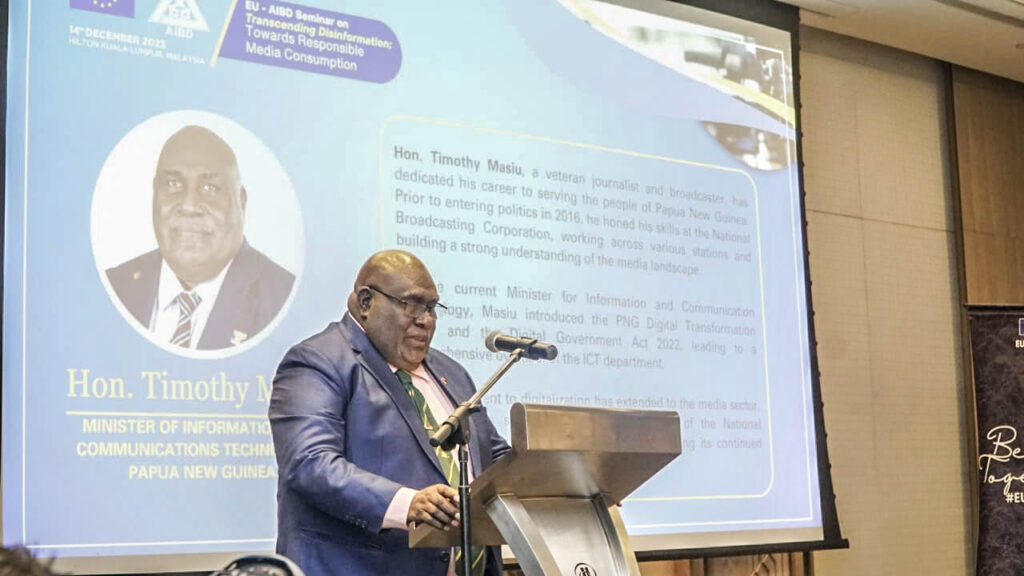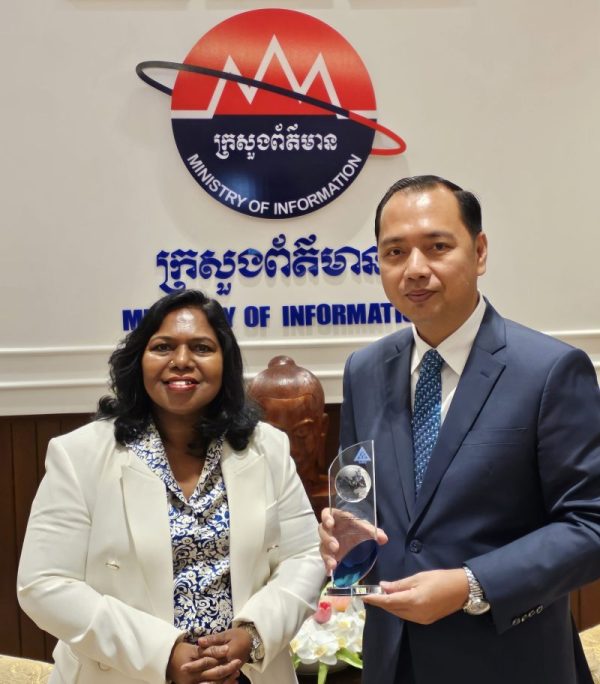
Ethical Dilemmas in Reporting on Issues Related to Women Migrant Workers
A session report on Ethical Dilemmas during AIBD/Safe &Fair Programme Online Workshop On Inclusive And Gender-Sensitive Reporting On Issues Related To Women Migrant Workers by Mr Anthony Rajoo. The session was conducting by Ms Naomi Goldsmith. Naomi Goldsmith works in some of the world’s most challenging environments supporting and training journalists. In Afghanistan, she directed a project on reporting on migration where news stories, a radio drama, online and social media content were used to inform the public about the dangers of irregular migration and their rights with regular migration. She has worked with media houses throughout south and south east Asia.
Is your story true? Is your report fair?
Ethical journalism is to be fair to everyone including the officials and avoiding harm to all innocent parties and not retraumatize them with questions.
A photo shown on Somali refugees being sent to the origin country and the question posed by Ms. Naomi on how do one deal with the photo, what would a reporter look for? The objective was to validate the authenticity of the photo,
Participants answered to use the reverse image search at tin eye browser do an upload and search in the net to check its authenticity also
Use In vid browser which allows more video search to guide participants to check and validate the video on facebook, youtube and thumbnails
As well check on imprints on the photograph, magnify, geographic and geo location must be taken into consideration.
Matters pertaining to justification for payment, risks of payment and the best way in dealing with the situation was also raised as a small fee known as disturbance fee is usual the norm practice.
Avoid stereotypes, aware of being bias and treat everyone equally and unique.
Base reports on facts, not appearances and assumptions
Unconscious bias as journalist, vulnerable to different biases as we do it on unconscious bias as we are more likely to think something is true if it confirms our beliefs known as confirmation bias and be vary of unconscious bias
Anchor bias, more value on the first piece of information we hear and how this applies to journalists
Halo bias or the Halo effect meaning overshadow all else
Affinity bias, tend to like people who are similar to us therefore a story on migrants might be different from us, so avoid it
Bandwagon bias means to follow something because everyone is doing so
Talk to migrants and ask ourselves who does those jobs we take for granted
Visit and chat with people to source for stories and friendly chats
Ms. Naomi raised a question during the webinar as below:
A local NGO which supports women have experienced gender based violence invites to do a coverage on a young female migrant working in a garment factory who was trafficked and abused and she wants to tell her story, and an exercise as journalist how do we respond to investigate the unsafe conditions.
Answers were to silhouette the migrant;
Respect the informant and give them the control and do not push;
Drafty out questions and do research, understand the sensitivity, do not force upon a question;
A participant answered, to provide spy cam, however Naomi suggestions were to use smart phone but not professional items (Q2)
A case on glove factory during covid and photos and were taken and photos were forwarded to an NgO and found out that migrant lost his job. was that ethical?
A question by a participant on would there be an insurance coverage to media practictioners and does the media provides any coverage for both?
Ms. Naoimi reiterated saying,
Always gain trust
Offer time and space
Be clear how her story will be used
Be prepared for her to say NO at any time
Offer her anonymity if she is at risk
Treat her as if you would like to be treated
On Victims of survivors of violence and abuse
Ask what are they happy to talk about
Ask whether to be described
Allow them plenty of time
Suggest a friend to support them
Thank them for sharing
Do not presume
Do not judge
Avoid implying their actions caused the abuse
Avoid offering advice
A journalist job is to tell the story, no emotional ties
If, WORKING UNDERCOVER, ensure, there is another way, going undercover is a last resort.
Be transparent with your source about all the risks involved
Mostly ensure you do no harm when telling her story and ensure all your sources are safe and never reveal source as its an ethical principle .






